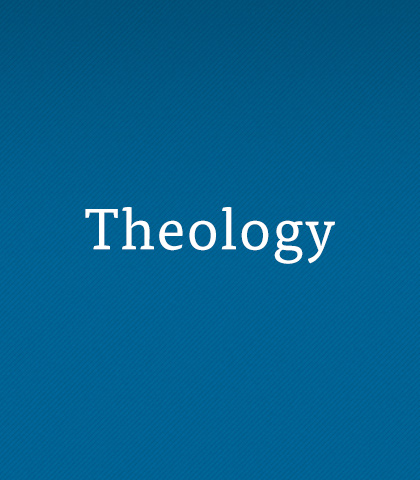Punctuating Your Faith with Doctrine
When I think of doctrine in the Christian life, I liken it to grammar. Doctrine is boring. It’s old school. But wait…is that true? Maybe doctrine is actually the key to a passionate and vibrant faith.

What words come to mind when you hear the term theology? Dry…Dreary…Doubtful…DULL? You’re not alone.
Too often we don’t realize that theology—thinking about God—is an intimate part of our everyday lives, rather than something that takes place in ivory towers crowded with bearded men crouched over dusty books. We each engage in theology because we each have a set of beliefs about God. But rather than being content with our ideas about God as they now stand, we should each have a desire to know God better than we do today. If you’ve got that desire, then you’re ready to do theology!
Let these resources point the way to a faith more deeply connected with who God actually says He is.
When I think of doctrine in the Christian life, I liken it to grammar. Doctrine is boring. It’s old school. But wait…is that true? Maybe doctrine is actually the key to a passionate and vibrant faith.
There can be no more reliable authority on earth than God’s Word, the Bible. This timeless, trustworthy source of truth holds the key that unlocks life’s mysteries.
We are exhorted to practice persistent repetition of our requests, not a formulaic repetition of words, which Jesus condemned (Matthew 6:7–8).
Childlike faith, while a good place to start, must mature. How do we mature in our faith? Just as physical maturity requires certain things the same is true for spiritual maturity.
Wise living chooses to understand and respond to all of life—our relationships, our work, our words, and our money—from God’s viewpoint.
We are the recipients of so much from God’s gracious hand. Why? Why all these tremendous blessings? These Psalms 67 and 103 answer that question.
The doctrine of the virgin birth, or perhaps more accurately the virgin conception, is important for many reasons. On it hang the doctrines of original sin, the inspiration of Scripture, who Jesus was, and what Jesus did in salvation.
The book of Ecclesiastes ends with the rebel back in the pulpit, now that his heart and soul are above the sun.
This section of Ecclesiastes, though direct and bold, is very much in tune with life today.
In this paragraph out of Solomon's journal (Ecclesiastes 8:10-17) we find the wise man, hoping to balance idealism with realism.
This is to test
This is to test an ad block custom module.